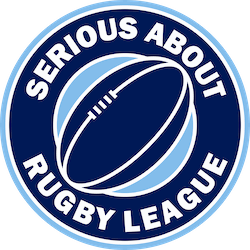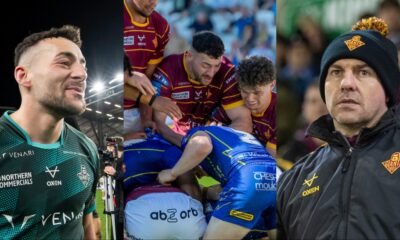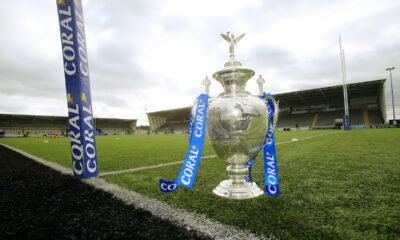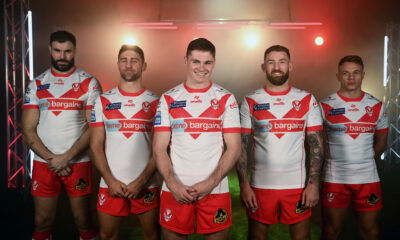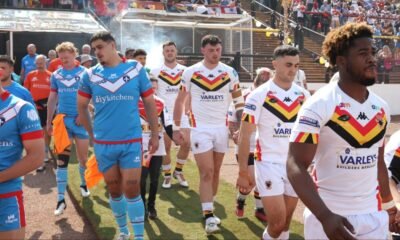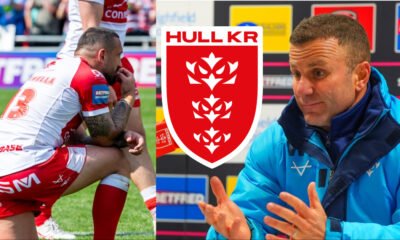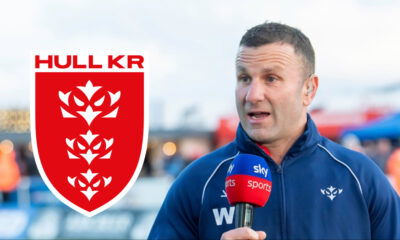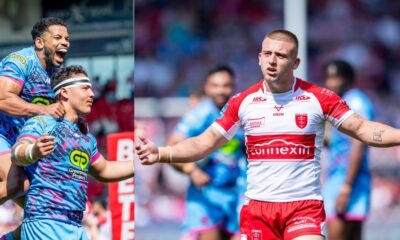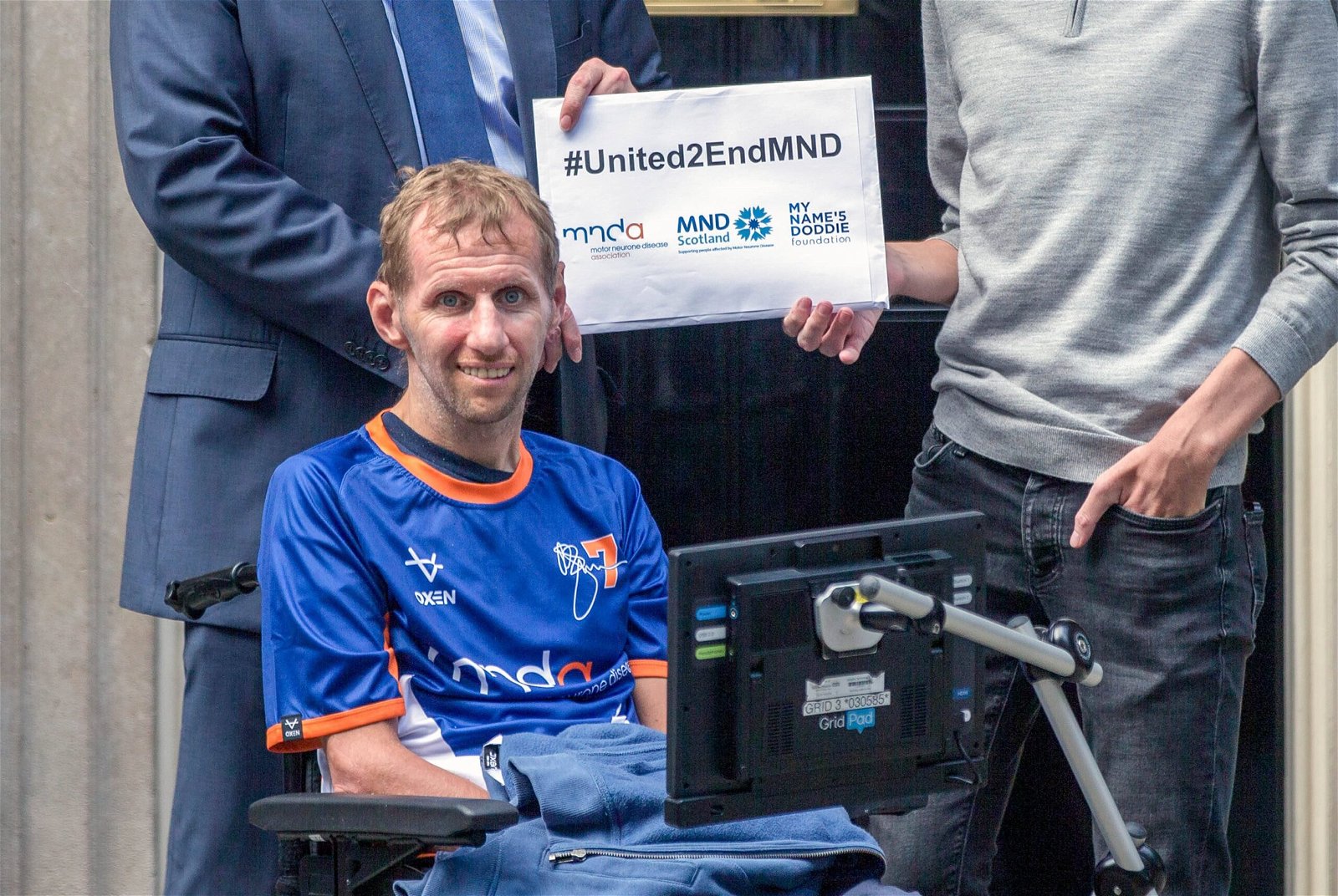
Motor Neurone Disease is a condition that rugby league fans have had to become all too familiar with given the ongoing battle that Leeds Rhinos legend Rob Burrow is currently undertaking with the disease.
Burrow was diagnosed in December 2019 with the condition that affects the brain and the body’s nervous system and since then he’s been a huge advocate in raising awareness.
Those efforts to raise awareness began in January 2020 when fellow former Rhino Jamie Jones-Buchanan shared his testimonial game with Burrow, that clash with Bradford being the first in a string of brilliant fundraisers.
The efforts have been championed by Kevin Sinfield who has taken them to another level with his incredible fundraising such as his Seven in Seven challenge, and most recently completing the Rob Burrow Leeds Marathon having push former teammate Burrow around the course.
In total over £7 million has been raised but the illness is still underfunded with the brilliant fundraising efforts being underlined by their commonly used phrase: ‘MND is not incurable, it’s just underfunded’.
Another man who has been incredibly vocal in raising awareness and specifically holding the government to account is Rob’s Dad, Geoff, and he has recently reacted to the news that the MND Association will challenge an NHS ruling.
The MND Association Taskforce had identified that the drug Proleukin, normally used to treat other conditions, could well be effective at treating MND.
Despite the drug being considered under the NHS England Drug Repurposing Scheme it has since been denied, deemed to not ‘fit within the criteria’.
The MND Association will now challenge this, as confirmed by them in a statement posted on their Twitter, much to the praise of Geoff Burrow.
Yes thank you to the MNDA for the update and for challenging the decision 🙏
Hopefully this is a positive major step forward 🤞 https://t.co/X1j5EWk2NC
— Geoff Burrow (@burrow_geoff) August 10, 2023
A statement shared on the MND Association’s website reacted to the news.
“Our work under the umbrella of the MND Access to Treatments Taskforce is continuing at pace, with our focus very firmly on how we can support people with MND to access potential treatments at the point where positive trial results are published.
“As you know from our weekly updates, our attention at the moment is on the MIROCALS study into Interleukin-2. With the help of a team of experts we are investigating and identifying early access routes to low-dose IL-2, which is currently unlicensed, and also navigating any potential barriers to gaining access. We want to make sure that, should the anticipated trial data prove positive, the drug is made available at the earliest opportunity.
“We’ve had a number of discussions around this – some helpful, some less so.
“As background, Proleukin was the version of IL-2 purchased for the MIROCALS trial. At that time, the drug was owned by Clinigen Ltd.
“In January of this year, Clinigen sold the worldwide commercial rights to a company called Iovance Biotherapeutics, based in the USA.
“We have met with Iovance and they have assured us there would be no disruption to the supply of Proleukin in the UK. When the MIROCALS data is published, and if the results are positive, there should be no barrier to availability of Proleukin for compounding into a low-dose formulation.
“The next stage is the compounding of the drug. Compounding is the pharmaceutical process of combining, mixing or altering a drug for specific use. While Proleukin is approved for use in certain cancers, its high dose can affect the body very differently from low dose – it’s the low dose version which has been tested in the trial. Iovance does not have the capability to compound the drug.
“We set up a meeting with Target Healthcare, a company which supplies drugs via the NHS Specials route to discuss if it could compound the drug. The answer was yes. Target Healthcare has confirmed it has the ability and capacity to compound the drug to a low dose formulation.
“So we now know that, should the trial results prove positive, the drug will be available in the formulation necessary. The next stage would be getting that to patients. We’re already in discussion with the 22 MND Care Centres and Networks we help fund about how they would support patient access to the treatment. These are vital conversations which cover several important aspects, including funding, resourcing and training. We will keep you updated as those conversations progress.
“In the meantime, the taskforce has identified the potential for Proleukin to be considered under the NHS England Drug Repurposing Scheme. This is a process which looks at repurposing existing medicines, already licensed for a particular condition, to treat another condition without having to go through the usual licensing process.
“We held an informal meeting with the Head of the NHS Drug Repurposing Scheme.
“Following that, we have been advised that because there is an intention to licence low dose IL-2 for ALS (the most common form of MND) by ILTOO Pharma the repurposing of Proleukin doesn’t fit within the criteria of the drug repurposing scheme.
“This means ILTOO Pharma will need to submit its formulation of low dose IL-2 to the regulators in the UK, including MHRA and NICE, a process which we know can be very time-consuming.
“We are hugely disappointed and incredibly frustrated by this news and we are challenging that decision. We have requested a formal meeting with the Head of the scheme and are urging them to review their decision and provide some clarity around the criteria. We will then work with that new information to consider the way forward.
“People with MND don’t have time to wait and we are doing everything in our power to prevent delays, including challenging unnecessary barriers.”
For more information about MND and how you can either spread awareness or fundraise, there is a link to information here.
